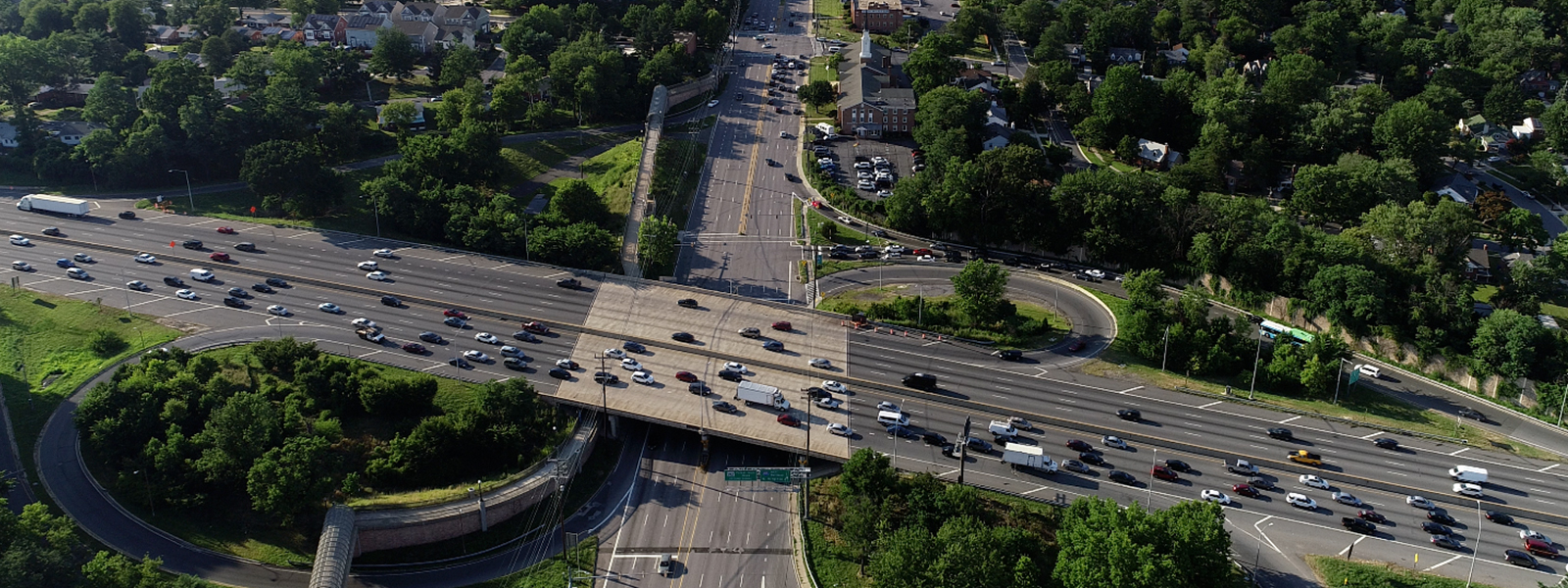
Plan would leave transit unfunded, damage parks, increase greenhouse gas emissions
WHEATON, MD – Leaders of The Maryland-National Capital Park and Planning Commission (M-NCPPC) said they have strong reservations about the Maryland Department of Transportation’s (MDOT) proposal for expanding the Capital Beltway and Interstate 270, arguing that the state’s plan would shortchange transit and inflict unnecessary damage to parkland while increasing emissions from vehicles.
“We are extremely disappointed in the state’s ‘preferred alternative’ for adding lanes to these highways while offering nothing to reduce the need for more cars,” said M-NCPPC and Prince George’s County Planning Board Chairman Elizabeth M. Hewlett. “As stewards of the environment and important community assets, we are experienced in crafting sound land use and transportation policies for Montgomery and Prince George’s Counties. It’s just indefensible that the state’s proposal ignores our recommendations to use part of the toll revenue to fund transit as part of a strategy to minimize the amount of land – including parkland – that will be paved.”
MDOT announced last week that the state’s “preferred alternative” version of the highway-widening project would add a total of four high-occupancy toll (HOT) lanes to I-495 and I-270—two in each direction. The alternative selected by MDOT does not provide for any allocation of toll revenue for the expansion of transit, such as a Metrorail extension, bus rapid transit or expanded MARC service.
“Any alternative that does not include substantial support for transit from toll revenue is a non-starter,” said M-NCPPC Vice-Chair and Montgomery County Planning Board Chair Casey Anderson. “For months MDOT has been saying that revenue for transit would be included in the project, but they have yet to make any commitment to actually making it happen. Allowing buses to use the new toll lanes is not going to cut it – this project needs to get serious about support for transit.”
M-NCPPC also has raised a wide range of environmental concerns about the impact of adding lanes to I-495 and I-270, which run through public parks and over streams owned and managed by M-NCPPC. MDOT has said it plans a variety of environmental remediation efforts as part of the project, but the Commission has not been asked to review any of the proposed mitigation plans.
M-NCPPC has pointed out that adding lanes to the Beltway and I-270 is certain to increase long-distance commutes and accompanying tailpipe emissions. “We are in a climate emergency,” Anderson said. “MDOT should not – and under the law, it cannot – propose a major highway expansion without seriously considering alternatives with less damaging environmental impacts.”
M-NCPPC was selected by MDOT SHA as a cooperating agency on the I-495 and I-270 Managed Lanes Study. The purpose of the study is to develop a travel demand management solution that addresses congestion, improves trip reliability on I-495 and I-270 within the study limits and enhances existing and planned multimodal mobility and connectivity.
“We continue to hope for a more collaborative relationship with MDOT on this effort in the future,” said Hewlett. “Together, we can determine the best solution for Montgomery and Prince George’s Counties and our community members.”
About the I-495 and I-270 Managed Lanes Study
The I-495 and I-270 Managed Lanes Study was initiated by MDOT along I-495 (Capital Beltway), as well as along I-270 (Dwight D. Eisenhower Memorial Highway). Managed lanes consist of a highway facility or set of lanes where operating strategies are used to control the number of vehicles using the lanes at any given time. Any selected build alternative is likely to have significant impacts on parkland and the associated facilities, programs and natural and cultural resources in both Montgomery and Prince George’s Counties as well as on communities in those counties. Learn more about the MDOT SHA Managed Lanes Study. M-NCPPC’s project coordinators for the Managed Lanes Study are Carol Rubin for Montgomery County and Debra Borden for Prince George’s County.
About The Maryland-National Capital Park and Planning Commission
The Maryland-National Capital Park and Planning Commission (M-NCPPC) is a bi-county agency empowered by the State of Maryland in 1927 to acquire, develop, maintain, and administer a regional system of parks within Montgomery and Prince George’s Counties, and to provide land use planning for the physical development of Prince George’s and Montgomery Counties. In addition, the agency gained responsibility for the public recreation program in Prince George’s County in 1970.
The governing body of M-NCPPC consists of 10 members, five appointed by Montgomery County and five by Prince George’s County. The commission coordinates and acts on matters of interest to both counties, and meets at least once a month. The members of the commission from each county serve on separate county planning boards to facilitate, review, and administer the matters affecting their respective counties.